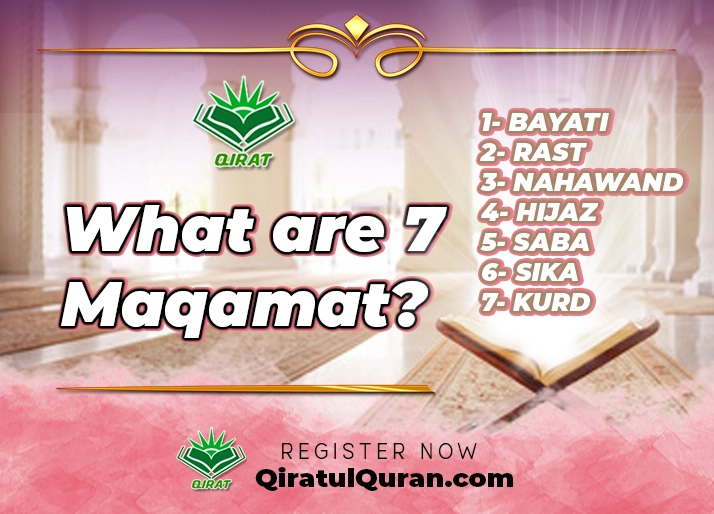The melodious and Beautify Your Voice in Quran Maqamat is a blessing for both the reciter and the listener. When recited with proper technique, rhythm, and tone, the divine words of the Quran can touch hearts and soothe souls. Mastering the art of reciting the Quran with a beautiful voice takes dedication, practice, and knowledge of the rules of tajweed and maqamat.

Understanding Maqamat and Their Importance
Maqamat (or maqams) refers to the melodic foundations upon which Quranic recitation is built. They provide the tonal framework and unique melodic scales that enable reciters to Beautify their voice in Quran Maqamat pleasantly and movingly. Learning maqamat allows you to Beautify Your Voice in Quran Maqamat accurately renders the Quranic text according to the rules of tajweed while also adding beauty and melody to its recitation.
There are 10 main maqamat used in Quranic recitation:
Rast
The Rast maqam evokes feelings of vitality and joy. Its upbeat tones make it fitting for dynamic verses or passages praising Allah’s magnificence.
Bayati
Bayati creates a bright and uplifting ambiance. Its enthusiastic melodies suit verses extolling Allah’s glory or describing the bounties of paradise.
Sikah
Sikah generates a warm and affectionate mood. Due to its gentle tones, it is often used for soft passages or verses related to Allah’s mercy and love.
Saba
The melancholic nature of Saba infuses recitation with somber emotion. It is appropriately applied to verses about loss, death, or the ephemeral nature of life.
Hijaz
Hijaz imparts a sense of longing and intimacy. Its yearning melodies make it appropriate for verses describing human being’s relationship with the divine.
Nahawand
Nahawand produces a dignified and stately ambiance. The maqam’s graceful melody complements verses related to prophethood or the grandeur of Allah.
Huzam
Huzam creates an atmosphere of awe through its striking tones. It heightens the impact of verses depicting scenes of nature or the last judgment.
Nawa Athar
The mournful essence of Nawa Athar evokes sadness and pathos. It is fitting for verses on hardship, death, or spiritual anguish.
Jiharkah
The uplifting and unconstrained tones of Jiharkah infuse recitation with joy and hope. It brings an optimistic air to verses on divine providence or bounty.
Ajam
Ajam generates a mood of tenderness and poise. Its gentle strains complement delicate themes or passages related to Allah’s care and protection.
Learning these 10 maqamat allows reciters to fully utilize the emotional and vocal range of the Quran. It enables them to vocalize each verse using tones and melodies tailored to the passage’s distinct meaning and spirit, bringing the words to life.
Perfecting Your Maqamat through Expert Instruction
Gaining expertise in maqamat takes time and instruction from qualified Quran teachers. Qiratul Quran Institute offers structured lessons and one-on-one training to help students master maqamat and their nuances. Their systematic maqamat curriculum covers:
- The background and origin of each maqam
- Proper intonation and melodic movement
- Applying maqamat principles during recitation
- Transitioning smoothly between different maqamat
- Modulating your voice to match different maqamat
- Developing an emotional connection to each maqam’s essence
- Practicing maqamat through focused drills and exercises
- Using maqamat in solo and group recitation
Their holistic teaching methodology develops all aspects of maqamat mastery, from understanding the theory to expert vocal implementation. Students also learn how to seamlessly utilize maqamat while adhering to other rules of tajweed.
The knowledge and individualized guidance provided by Qiratul Quran Institute equip students with the skills to unlock the full potential of the maqamat course. Their training produces well-rounded reciters capable of touching listeners’ hearts through the proper and melodious application of maqamat.
Achieving Melodic Harmony Through Different Tunes
In addition to maqamat, incorporating appropriate tunes can further beautify Quranic recitation. Tunes refer to the specific rhythmic styles and melodic phrases applied when reciting a verse. Certain tunes are better suited to specific maqams, texts, and recitation settings.
Mastering the use of various tunes expands a reciter’s repertoire and ability to tailor their recitation for maximum impact. Qiratul Quran Institute’s expert Quran teachers instruct students on utilizing tunes such as:
Tarteel
Tarteel refers to measured, rhythmic recitation which follows the exact rules of tajweed. Its steady pace and precision make it fitting for solo recitation.
Tahleel
Tahleel features a free-flowing melodic style that elicits an emotional response from listeners. It is often used in small gatherings or when reciting individually.
Mujawwad
Mujawwad is a formal style of group recitation marked by synchronized melodies. It creates a majestic ambiance when performed by multiple reciters together.
Murattal
Murattal is a straightforward tuneful style typically used to chant lengthy passages of the Quran. Its simple flowing melodies help maintain an atmosphere of tranquil reflection.
Mujawwad Tarteel
This combines the measured pace of Tarteel with the harmonized tones of Mujawwad. It produces a stately yet soulful group recitation.
The versatility provided by these different tunes allows reciters to tailor their tone, rhythm and phrasing to complement the maqam and subject matter of each verse. Qiratul Quran Institute gives students sample training in applying tunes to enhance the beauty and efficacy of their recitation in diverse contexts.
Unlocking Your Voice’s Full Capabilities
Having a naturally beautiful and melodious voice is a gift. However, realizing the full potential of your vocal instrument requires nurturing and training. Through structured lessons and expert guidance, Qiratul Quran Institute polishes students’ natural talents to help them attain a professional level of excellence and beauty in Quran recitation.
Their comprehensive curriculum identifies and resolves any weaknesses or problem areas in students’ voices. Their highly qualified instructors utilize proven techniques to extend students’ vocal range, improve tone quality, amplify resonance, enunciate clearly, and maximize vocal stamina.
Students are also taught specialized breathing and vocal warm-up exercises to keep their voices finely tuned and ready for the rigors of recitation. These include:
- Diaphragmatic breathing to support the voice
- Vocal stretches and massages to relax the vocal apparatus
- Staccato drills to increase articulation and control
- Sustained notes to build breath capacity and control
- Lip trills for resonance and tone focus
- Pitch glides to smooth vocal transitions and increase range
The voice training provided by Qiratul Quran Institute empowers students to deliver professional-grade recitations that capture the divine beauty of the Quran. Students gain the confidence and skills to share their voice with others as an act of spiritual devotion.
Amplifying Expression Through Emotive Recitation
Beyond proper technique, truly beautiful Quranic recitation requires infusing each verse with appropriate emotion and meaning. The expert reciters of the Qiratul Quran Institute teach students how to recite with genuine feelings in order to fully move the listener. Their instruction includes:
Understanding Context
- Analyzing the precise context and implications of each verse
Interpreting Meaning
- Grasping the essence, spirit, and significance behind the text
Evoking Emotion
- Using tone and delivery to evoke target emotions for each passage
Conveying Conviction
- Allowing your inner state to manifest through your voice
Mindful Recitation
- Maintaining a presence and focus on the meaning while reciting
Responsive Phrasing
- Modulating your voice in response to the text
Through this emotive training methodology, students learn to reach higher levels of insight and expression. They are able to inject each verse with the appropriate intensity, joy, reverence, or pathos called for by the text. This takes their Quranic recitation beyond mere melody to achieve true spiritual resonance.
Achieving Excellence Through Passion and Practice
Developing an exceptional level of skill in any discipline requires passion and persistence. At Qiratul Quran Institute, students are fueled by their love for the divine words of the Quran and desire to recite it beautifully. This passion is paired with structured methodology and regular practice to turn talent into mastery.
Their comprehensive curriculum gives students a clear roadmap for excelling at Quranic recitation in all facets: tajweed, maqamat, tunes, vocal ability, and expression. Dedicated students reap immense rewards from completing this meticulously designed training regimen.
However, mere classroom lessons are not enough. Mastery requires daily individual practice to ingrain skills and progress beyond your current level. The Institute’s staff motivates students to devote time each day to vocal exercises, maqamat drills, memorization, and mindful recitation.
With passion as their driving force and structured practice as their road to excellence, Qiratul Quran Institute’s students ascend to the peak of beautiful Quranic recitation. They gain the competence to mesmerize listeners and move hearts through their soulful and technically outstanding renditions of the Quran.
Conclusion
Allah revealed the miraculous words of the Holy Quran as guidance and mercy for human beings. When recited with beauty and skill, the Quran’s splendor and power become manifest. Through proper training in maqamat, tunes, vocal ability, and expression, reciters can attain professional excellence in beautifying their recitation to match the sublime beauty of the Quran. By following a structured methodology and passionate practice, students of the Qiratul Quran Institute unlock their voices’ full potential and learn to recite the Quran in a manner that inspires awe, faith, and inner peace. The art of Quranic recitation is a lifelong journey, but their expert training puts students firmly on the path to recitation excellence.





